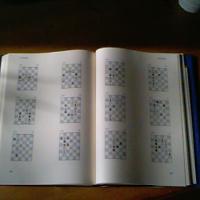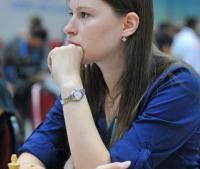
How to Get Better at Chess | The Critical Mistake to Avoid
Every day I get a lot of fan mail (thanks, guys!), and many of the messages are dedicated to the evergreen subject “how do I get better in chess?” I am trying to do my best to offer individual advice to everyone. However, there is a very widespread case which can be addressed in this column. Let me quote one of the recent e-mails first (slightly edited for anonymity purposes):
I would like to ask you a question about learning the right way of thinking in chess. I hope you have time to answer me. If not, I'll understand.
I'm an amateur and I'm working a lot on chess trying to improve. Last week I read the book The Improving Chess Thinker by Dan Heisman. It focuses on our thought processes in chess. I have the impression now that the way I think during the game is not always as structured and disciplined as it should be. Sometimes I move without looking closely enough at the consequences.
Now my question to you is: how do you think we (amateurs) can develop a correct way of thinking during the game? Did you receive a special training for this? What would your advice be?
I hope I don't waste your time with these questions.
And here’s my answer (also with small edits and additions):
If you really want to become better in practical chess, you shouldn't fall for the typical amateur's mistake. That is, believing that chess requires some special knowledge, an incredible IQ, a phenomenal memory, etc. It helps, but isn't a must-have unless you're aiming at 2700+ FIDE level.
As I have seen at Chess.com and other chess websites, the typical problem is that many people are wasting too much time reading books on theory, middlegame, etc. without playing chess often enough. And then there is the classic story:
When World Champion Michail Tal was giving a simul abroad (not in the USSR) for the first time, he was initially very afraid. He came up to Sosonko and said something like: "(I often lose to Soviet amateurs in simuls), but these guys seem to be real pros - they know the theory as well as myself!"
GM Sosonko smiled and said: "Relax, after move 15 they'll start playing on their own...".
And, indeed, after that most of his opponents lost in about 10 moves, since they didn’t really know how to play chess, they only memorized openings…
The gist: success in chess is not about adopting a magic way of thinking or reading 100 books on the middlegame and openings. I've seen lots of people who made it to IM and even GM without any special software, having read just a few (but good!) books. The key to their success is that they kept playing a lot, and learning from stronger opponents. Don't get me wrong: I am not suggesting stone age technologies in studying. Of course, you should take advantage of the best modern learning methods. However, the most important component of success (at least at weak GM and below level) is practice.
Remember the Pareto optimum rule applied to amateurs in chess: success is 80 percent practice, 20 percent study. And don’t try to imitate the training programs of top GMs like Anand, Carlsen or Kramnik. It’s like trying to copy Arnold Schwarzenegger’s workout routine from the time when he was Mister Olympia with the same weights as he had been using – you’ll just get crushed, both mentally and physically.
It’s also important to mention the psychological side: studying a lot builds tension in you, so you need to play live games to release it. Otherwise you’ll get stuck in front of your monitor playing blitz or correspondence games (no offense meant to these pastimes – I appreciate them a lot). Moreover, you will not be feeling any satisfaction with what you’re doing, lacking the sense of achievement. Let’s say you’ve been studying hard and have become 100 rating points stronger. Alas, if you don’t motivate yourself to play a few tournaments and prove it, your rating will remain the same. And that’s rather unfortunate, you know, not getting what you deserve.
On a separate note: some people are just afraid of losing their dignity and being made fun of if they appear at the tournament and do badly. However, the worst case scenario is that you might actually lose a few games. But every famous grandmaster has had a tournament where he lost more games than he won. Everyone has failures and successes. Besides, a failure in chess doesn’t indicate anything else other than that you haven’t been playing good chess at this event. There is no need to associate it with IQ, success in life, etc.
Also, speaking of fear: it’s the higher-rated people who should be afraid. Let’s say you’re playing against a GM (or NM, or an Expert – I mean someone “scary” for your chess level). His friends will indeed mock him if he loses even half a point against you, he risks losing lots of ratings points (and you maybe just 1), he may be a pro who needs to win a prize, etc. So, all the conditions are in your favor, just take your chance to learn from someone stronger than you, and try to beat him!
As to decision-making at the chessboard: it's a complex subject. Some people have tried to formalize it (starting from Steinitz). It usually begins with evaluating the position using different parameters, then deciding what move to make. The drawback is that all these schemes are somewhat artificial. There isn't a single GM who thinks about all that stuff before making a move.
For GMs playing chess is like riding a bike. It’s hard and of no use to describe in detail how it’s done, but after some practice you become pretty skilled.
You've just got to develop your instincts, your feeling of what is right and what is wrong. For example, when people are playing blitz or bullet, their moves are totally based on experience and instincts. And, as your skill level grows through practice and study, your understanding will allow you to make more balanced decisions.






